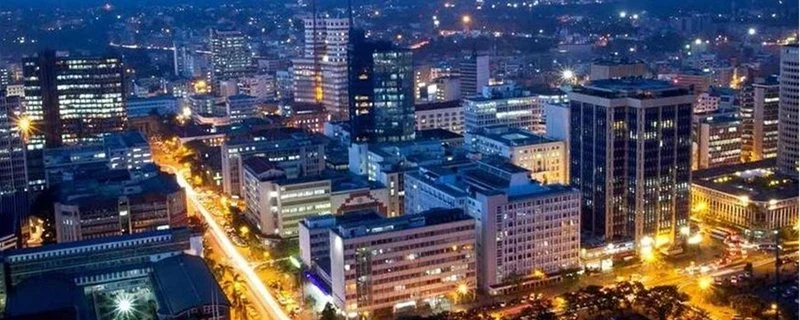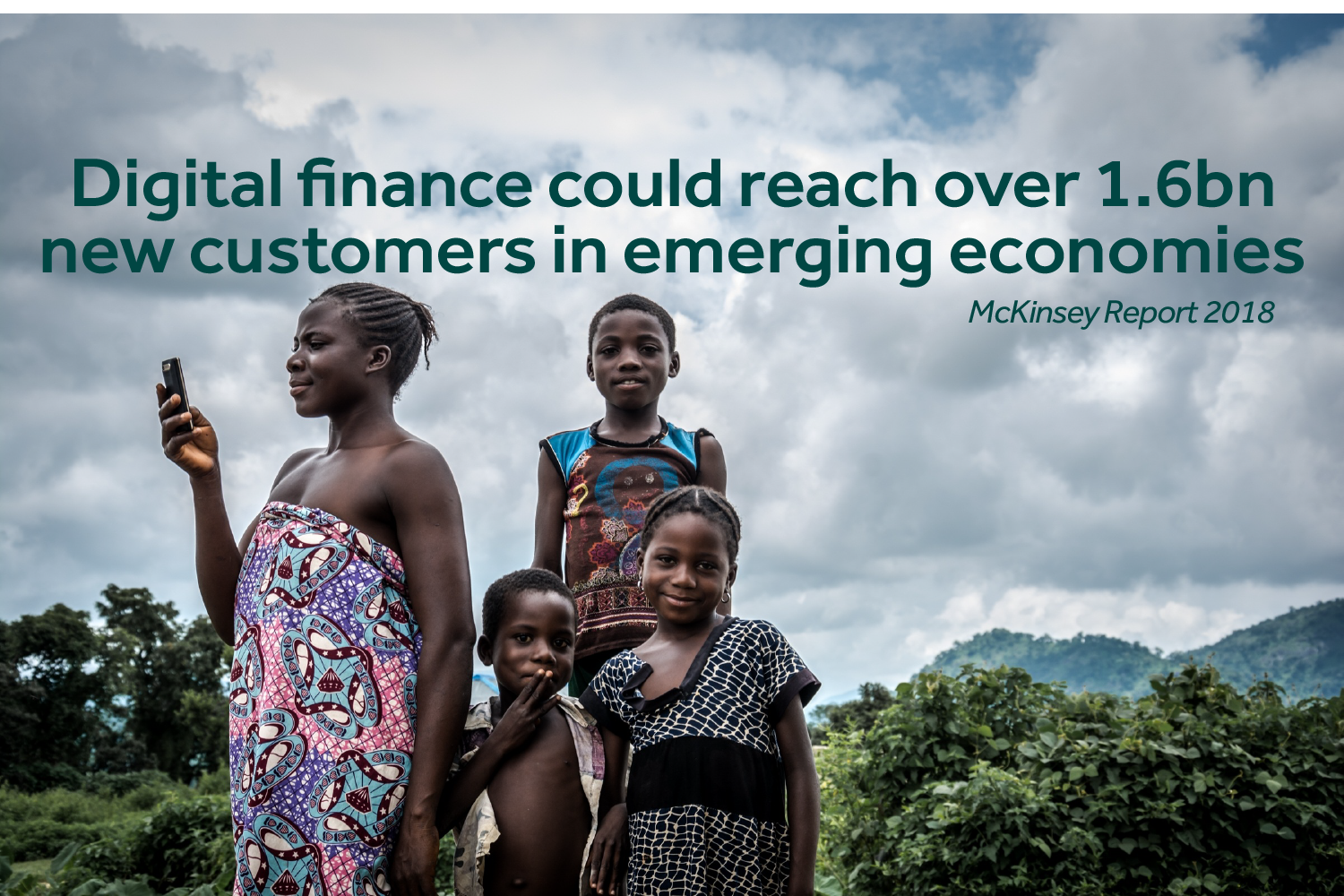
NEWS
Africa contributes less than 4% of global greenhouse gas emissions and yet is suffering some of the most severe impacts of climate change. The continent’s rivers are drying up, rain patterns are changing and crop yields diminishing – all of which threaten lives and livelihoods in the region. As Sanjeev Gupta, Executive Director for Financial Services at the Africa Finance Corporation (AFC) highlighted, in Africa, “climate change is not a theoretical discussion”.
In times of high volatility, as the global economy is currently experiencing, capital tends to retreat to markets closer to home. Africa’s funding gap is such that private capital, both domestic and international, will have to fill the bulk of the region’s development needs. Emerging from the challenges of the pandemic, it is more evident than ever that Africa will have to drive the solutions to its own challenges and advocate for its own interests in global markets.
With the Russia-Ukraine war compounding international supply chain issues and driving up inflation, the global economy has emerged from the pandemic into what is beginning to feel like an endemic crisis. We sat down with Nick Allan, CEO of Control Risks, after the Africa Debate to discuss his assessment of how Africa will be impacted by these global trends.
The ground has shifted and cheap budget funding in frontier markets is a thing of the past. In the current climate, African nations will struggle with a narrowing investor pool as high inflation and FX risks undermine attractiveness of Treasury securities. The funding gap has scarcely been so wide and widespread. However, funding options have also never been so diverse, and for those putting the correct policies in place, a new age of funding beckons.
The ground has shifted and cheap budget funding in frontier markets is a thing of the past. In the current climate, African nations will struggle with a narrowing investor pool as high inflation and FX risks undermine attractiveness of Treasury securities. The funding gap has scarcely been so wide and widespread. However, funding options have also never been so diverse, and for those putting the correct policies in place, a new age of funding beckons.
The ground has shifted and cheap budget funding in frontier markets is a thing of the past. In the current climate, African nations will struggle with a narrowing investor pool as high inflation and FX risks undermine attractiveness of Treasury securities. The funding gap has scarcely been so wide and widespread. However, funding options have also never been so diverse, and for those putting the correct policies in place, a new age of funding beckons.
Africa’s growing significance as a strategic partner with the UK will help both regions further their sustainable development agendas and strengthen their in the global geopolitical landscape. Synergies across clean energy, technology and finance provide firm footing to grow the UK’s relationship across the continent. We teamed up with Standard Chartered Bank to produce a paper providing a lay of the land, areas for growth and recent stagnation in trading relations. We included regional overviews from Standard Chartered Bank, spoke with CEO of British International Investment and gathered insights from companies on the ground.
Africa’s growing significance as a strategic partner with the UK will help both regions further their sustainable development agendas and strengthen their in the global geopolitical landscape. Synergies across clean energy, technology and finance provide firm footing to grow the UK’s relationship across the continent. We teamed up with Standard Chartered Bank to produce a paper providing a lay of the land, areas for growth and recent stagnation in trading relations. We included regional overviews from Standard Chartered Bank, spoke with CEO of British International Investment and gathered insights from companies on the ground.
From 14th to 16th September 2021, Invest Africa hosted the 7th Africa Debate virtually assembling over 1,000 business and policy leaders from over 50 countries to discuss the most pressing social and economic issues facing the African continent.
Throughout the discussions four key priorities for public and private cooperation emerged: strengthening Africa’s institutions, building more resilient health systems, boosting trade and investment and investing in a sustainable future.
NEWS 2018
Watch our interview: A highlight of The Annual Debate 2018, Alex Russel, Editor of the FT Weekend interviews the Honorable SB Moyo, Minister of Foreign Affairs and International Trade, Zimbabwe.
It may be a slow process, but financial inclusion in Africa is improving. Given the barriers formal banking faces on the Continent, including practical issues such as dispersed populations, and regional variations in infrastructure, it is unsurprising that this is not an issue which will be resolved overnight. We spoke to Ibukun Awosika to find out more on First Bank Nigeria's actions on financial inclusion, her thoughts on improving access to banking services – plus the impact of mobile in Africa.
As industrialisation continues to be held as the crucial step towards economic development in Africa, much energy has been poured into the potential for the Continent's manufacturing and heavy industry sectors. The conversation about Africa's industrialisation, however, cannot exclude a crucial driver of its economy – the agricultural sector.
The effect of limited road connections is estimated to add 40% to transport costs in Africa's costal nations – and 60% to landlocked ones. With the rate of population growth and urbanisation outpacing other nations worldwide, the necessity for infrastructure to support African development is vital.
The wave of mobile phone use in Africa has not only connected individuals to each other, but has connected many people to mainstream financial services for the first time. In regions where populations were majority unbanked, access to mobile technology has simultaneously unlocked mobile money, and spurred economic growth in societies previously run on informal, cash-based finance. By the end of 2016, the number of registered mobile money accounts in Sub-Saharan Africa stood at 277 million.
There is a mobile revolution unfolding in Africa - a revolution not only in how people communicate – but how they do business. Throwing off long-held assumptions about Africa’s technological development, the Continent’s populations are taking up the mobile phone – and its access to the internet – in their droves.
There is one way of charting Africa’s turn to connectivity: the rise of the mobile. As many have seen, mobile subscription continues to grow in Africa, outpacing every other region worldwide.
Since 2010, American Tower Corporation have established sites across South Africa, Ghana, Uganda and Nigeria; constructing over 8000 towers as part of their wireless network deployment.
We spoke to Hal Hess, President of Latin America and EMEA at American Tower on the transformation of Africa’s ICT sector, the impact of connectivity on the Continent and markets ATC are most excited about going forward.
With a planned oil refinery project worth $4bn, Fairfax's recent investments have drawn them to East Africa, with an ambitious infrastructure investment looking to provide Ethiopia and it's neighbours with 120,000 barrels of crude oil a day. Through financing as private equity and venture capital, the fund has created a profile of investments across manufacturing, agriculture and infrastructure - including co-investing in Hello-Cash, leading mobile payment platform. By refusing to shy away from the challenges posed by investing in Africa, the fund has focused on high-performing sub-Saharan nations and now enjoys a portfolio of companies employing more than 1,600 people - projected to reach 6,000 by 2020.
- 4G Capital fintech solutions are accelerating financial inclusion in Africa
- US $26M worth of loans disbursed to date
- Customers financial literacy grows with adoption of the service



















Africa’s people are one of the continent’s greatest strengths, but without sufficient investment in skills, jobs and financial inclusion the continent’s rapidly growing population could undermine the region’s development. With a current median age of 19.7, Africa is the youngest continent globally and expected to be home to over 2 billion people by 2050, representing 1/3 of the global workforce.